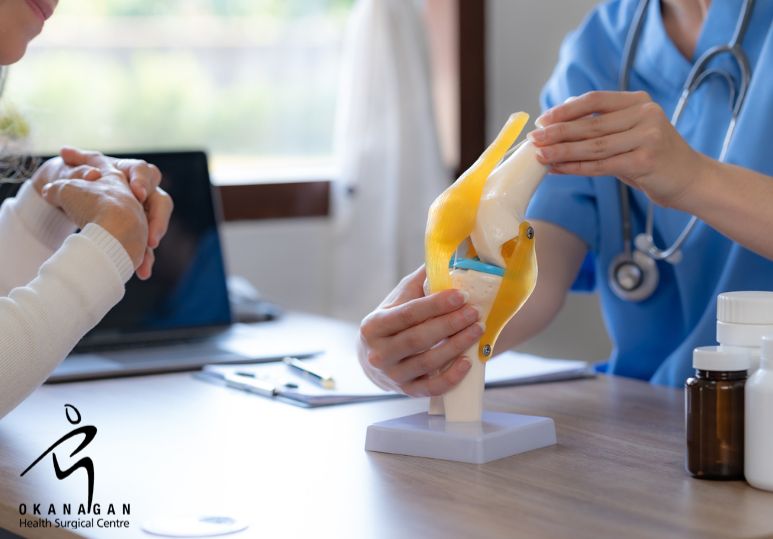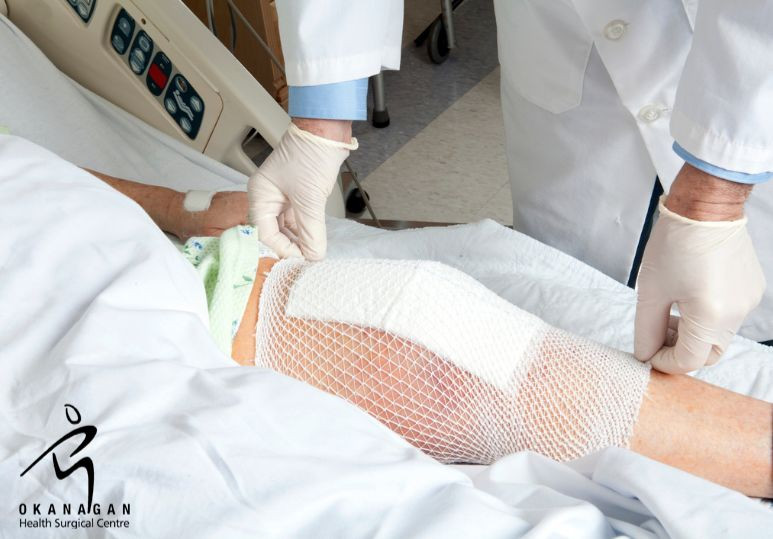Chronic joint pain can significantly affect your daily life, making even simple tasks feel overwhelming. For many, this pain starts gradually, and managing it with medications or therapy can be effective in the early stages. However, there may come a time when these treatments no longer provide sufficient relief. If you're dealing with persistent joint pain, it might be time to consider a more permanent solution: orthopedic surgery. At Okanagan Health Surgical Centre in Kelowna, we specialize in orthopedic procedures that can restore mobility, reduce pain, and help you get back to enjoying life. In this blog, we’ll explore three key signs that orthopedic surgery might be the right option for you.
Living with chronic joint pain can be exhausting. Whether caused by arthritis, an injury, or a degenerative condition, joint pain can make even the simplest activities difficult. Many people delay surgery, opting for physical therapy, medications, or lifestyle changes. While these treatments can help in the short term, they may not always be enough. There comes a point where the pain becomes too much to manage, and orthopedic surgery could offer the lasting relief you need. But how do you know when it’s time to consider surgery? Here are three signs to watch for.
1. Non-Surgical Treatments No Longer Work
The first major sign that it may be time to consider orthopedic surgery is when non-surgical treatments fail to provide relief. This includes a range of therapies, such as physical therapy, anti-inflammatory medications, corticosteroid injections, and even lifestyle adjustments like weight loss or exercise modification.
Initially, these treatments can help manage joint pain and maintain mobility. However, as joint conditions progress—especially in cases of osteoarthritis or joint deterioration—these options may no longer be effective. If you've tried multiple non-surgical methods but your pain persists or worsens, it could indicate that your joint has deteriorated to the point where surgery is the best solution. Surgery may be the next step to restore proper function and alleviate chronic discomfort.
2. Significant Loss of Mobility and Function
One of the clearest signs that orthopedic surgery may be necessary is when joint pain severely limits your mobility and ability to perform everyday tasks. Our joints play an essential role in almost every physical activity, from walking and climbing stairs to simply getting out of bed. When joint pain starts to interfere with these basic activities, it’s more than just an inconvenience—it’s a loss of quality of life.
For example, if you find it difficult to walk short distances, climb stairs, or perform routine tasks like cooking, shopping, or even driving due to joint pain, this is a strong indication that surgery might be the best course of action. When the pain becomes debilitating and prevents you from living your life as you once did, orthopedic surgery can help restore mobility, allowing you to get back to your normal routine without constant pain.
3. Chronic Pain That Affects Sleep and Mental Well-Being
Chronic pain doesn’t just affect you physically—it can also take a toll on your emotional and mental well-being. If joint pain disrupts your sleep or leads to feelings of frustration, anxiety, or depression, it’s another clear sign that surgery may be necessary. Poor sleep caused by joint pain can leave you feeling fatigued and irritable, further impacting your ability to function during the day.
Additionally, living with chronic pain can be mentally draining. Many people who experience persistent joint pain report feelings of helplessness or a reduced sense of self-worth due to their inability to participate in activities they once enjoyed. When joint pain starts to impact your emotional health and overall outlook on life, it’s time to seriously consider a more permanent solution like orthopedic surgery.
Orthopedic surgery can be a life-changing option for those struggling with chronic joint pain. While non-surgical treatments are often effective in the early stages, there comes a time when surgery may be the best solution to restore mobility, reduce pain, and improve your quality of life. If you find that non-surgical treatments no longer work, your mobility is significantly impaired, or your pain is affecting your mental and emotional well-being, it may be time to consider orthopedic surgery.
At Okanagan Health Surgical Centre in Kelowna, we are committed to helping our patients find lasting relief from chronic joint pain. Our experienced team of orthopedic surgeons provides personalized care and advanced surgical solutions to meet your individual needs. If you’re considering orthopedic surgery or want to explore your treatment options, we invite you to reach out to us. We’ll help you make an informed decision and take the next steps toward a pain-free life.
FAQs
Q: When should I consider orthopedic surgery for chronic joint pain?
A: If non-surgical treatments like medication or physical therapy no longer provide relief, it may be time to consider surgery. Call us for more personalized information!
Q: How do I know if my joint pain is severe enough for surgery?
A: If your pain limits daily activities, mobility, or disrupts your sleep and mental well-being, you should consult with a specialist to discuss surgery options.
Q: Can surgery provide long-term relief from joint pain?
A: Yes, orthopedic surgery often provides lasting relief from chronic pain, improving joint function and quality of life.







